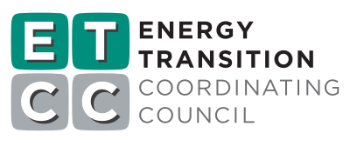Project Info
ACTIVE
Project Title
Multi-Function Heat Pump Research Home Test – Variable Speed
Project Number ET24SWE0058 Organization SWE (Statewide Electric ETP) End-use Whole Building Sector Residential Project Year(s) 2024 - 2026Description
Heat pump space conditioning and water heating can greatly reduce energy consumption compared to existing electric resistance or natural gas combustion options. Requirements for electrical service upgrades add cost and installation delays for customers considering retrofit heat pumps. Anywhere from 30% to more than 50% of homes are expected to require electrical service panel upgrades to fully electrify (https://www.pecanstreet.org/2021/08/panel-size/).[NB1] [DV2]
Residential MFHPs use one efficient compressor and outdoor heat exchanger coil to provide space cooling, space heating, and domestic hot water heating. MFHP systems can save energy compared to typical gas-fired or electric heating, ventilation, and air conditioning (HVAC) and water heating equipment. MFHPs may also increase energy savings compared to typical separate HVAC and hot water heating heat pumps. These MFHP systems also have the potential to eliminate the need for electric-resistance backup heaters, thus reducing the maximum power requirements so that full capacity systems can fit on existing electrical panels in many retrofits. Air-to-air versions of MFHPs use refrigerant to move thermal energy into and out of the building and can recover waste heat from space cooling to heat domestic hot water for additional energy savings.
The Panasonic Aquarea EcoFleX and Villara AquaThermAire air-to-air MFHPs are complete systems with all equipment made by the same manufacturer with fully integrated controls. These systems do not require custom engineering design, detailed equipment selection, or custom controls development.
This study will evaluate a variable speed air-to-air MFHP system, likely the Panasonic Aquarea EcoFleX, in the UC Davis Energy and Efficiency Institute (EEI) Smart Home research house and compare it to a typical separate air-to-air space conditioning heat pump and standalone heat pump water heater. This study will measure the efficiency and capacity performance of each system in alternating weeks to evaluate the MFHP energy saving potential across heating, cooling, and shoulder seasons. This study will also evaluate controls to increase the use of waste heat recovery water heating in the MFHP. The research house is not occupied, so the thermostat, internal loads, and hot water draws will be the same for both the MFHP and baseline systems for an apples-to-apples comparison. Testing in a real, unoccupied test building with consistent loads is particularly important to validate energy savings for MFHPs because of the highly variable hot water consumption patterns and internal loads in occupied homes. Equipment will be selected to match the MFHP hot water first-hour rating and standalone heat pump water heater first-hour rating and tests at different hot water usage levels will be performed to compare tank size requirements.
This project will enable validation of future simulation-based energy savings estimates and inform MFHP sizing considerations as part of future measure development for deemed utility efficiency programs. Future field demonstrations will verify installation cost savings, energy savings, and customer satisfaction, including among DAC and HTR customers.
